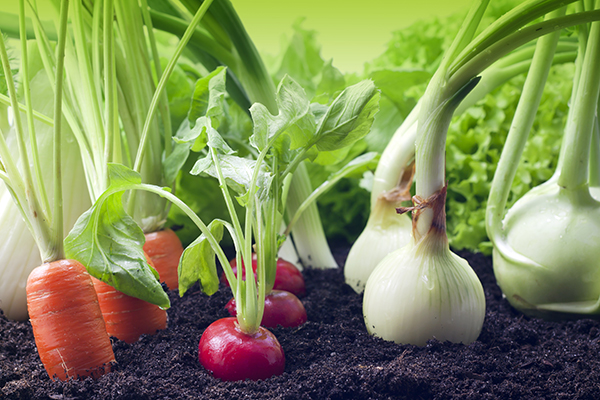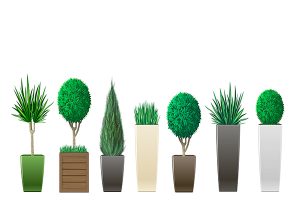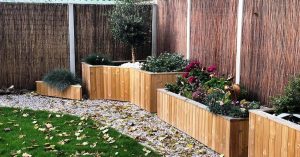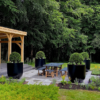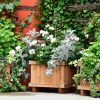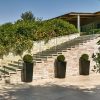Growing organic fruits and vegetables in pots, planters and containers is becoming increasingly popular as more and more people are appreciating the advantages on offer. Creating your own vegetable container garden means you can enjoy the freshness of your own crops straight from the garden, whilst feeling good about knowing what has gone into them. Most plants grow well in planters and garden pots so you’re not limited to what you can grow yourself.
Preparing your vegetable planters
Growing organic crops in containers requires the same preparation as growing vegetables in the ground – you still need healthy soil rich in nutrients, natural sunlight and room for the veggies to grow.
Choosing a good sized container for your plants
When it comes to choosing your vegetable planter, the bigger the better! Small pots may look pretty but they can negatively affect the way your plants grow, so if you mean business opt for a purpose-built vegetable container. A big container means more soil which can stay moist longer and hold more nutrients. If you’re thinking of planting root vegetables like carrots or parsnips, or hoping to produce a healthy crop of potatoes or grow a fruit tree, then you’ll need to choose a deep container as they require a lot of space to grow well.
Regardless of which type of plant pot you end up using, every vegetable container requires good drainage. If you’re planter doesn’t come with drainage holes then you’ll need to drill these in yourself if your vegetable container is going to succeed. Excess water needs to be able to pass through the container so that the roots of your vegetables are not sitting in stagnant water. If your planter has a flat bottom, try to raise it off the ground.
Preparing the soil for your containers
To get the best results, you need to consider what soil you will use in your vegetable pots. Plain soil from the garden will be too dense for planters, so you will need to fill your containers with quality potting soil. Organic potting mixes are available to buy, so have a shop around locally to source the best one. Make sure you check the ingredients in the soil, as some may contain synthetic ingredients like chemical fertilisers. Most people growing their own organic garden like to create their own mix of soil so that they know exactly what is in it. It may take some testing to get it perfect, but a simple method to follow is to mix equal parts of soil and high-quality compost, adding coarse materials to enhance its texture and moisture retention.
Finding the best location for vegetable gardening
When choosing the location for your organic vegetable containers, the first thing you should think about is sunlight as this will play a major factor in how your vegetables grow. Most crops like plenty of sun, so you should place your planters somewhere they can get at least 6 hours of direct sunlight a day. South-facing locations will provide plants with sunlight first thing in the morning. But bare in mind that your vegetable containers will need some protection from the sun during part of the day as too much harsh light could result in the soil becoming very dry. Of course the great thing about container gardening is that they can be moved, so you can relocate your vegetables according to their needs.
Keeping your crops watered
Fruit and veg grown in containers do not have access to moisture in the ground as planting in a traditional method would provide, so how much you water your plants is an important consideration. This will be dependent on a number of factors, from the type of crops you’re growing to weather conditions. If it’s a hot summer, make sure you water your plants both in the morning and the evening to ensure that there’s enough water to reach the roots. There is also a risk of losing essential nutrients through the excess water lost through the drainage, so most plants will benefit from a liquid organic fertiliser.
Pest control
The great thing about container gardening is that plants and crops are raised above the ground and so they are less susceptible to damage from pests and diseases. The flexibility of vegetable planters means that you can place them close to the house, and so it’s easy to keep your organic crops in good health and spot any pests before they cause a lot of damage.
Buy vegetable containers and raised beds
Here at Taylor Made Planters, we provide a wide range of planters perfect for growing organic vegetables. Can’t see what you need? Then get in touch with our team and they’ll give you a quote for a bespoke design made to your specification.
Published: 18th September 2017







